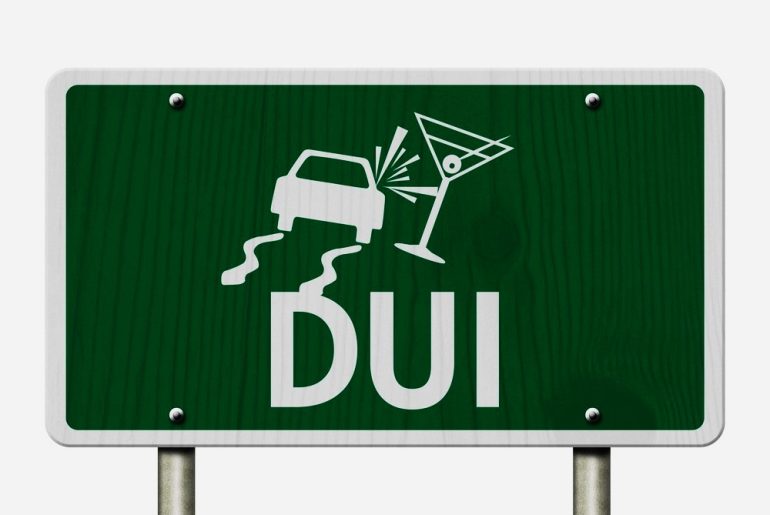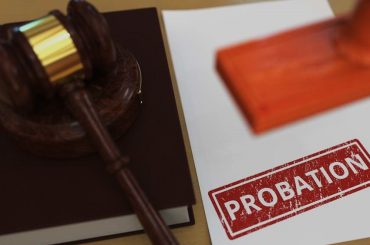The costs of a DUI in California can be considerable and vary widely based on the specifics of each case and whether or not the charge leads to a conviction. Below is a breakdown of the various expenses that can contribute to the total cost:

- Fines: Fines for a first-time DUI can reach up to $1,000.
- Attorney Fees: If you hire a private attorney, fees can range from $3,000 to $15,000 depending on the complexity of your case.
- Increased Car Insurance Premiums: After a DUI conviction, you can expect your car insurance premiums to increase significantly, potentially costing you between $3,000 to $6,000 over three years.
- Towing and Impound Fees: Towing and storage of your vehicle can cost between $500 to $1,000.
- DMV Driver’s License Reinstatement Fee: To get your license reinstated after suspension, you’ll likely pay a fee of $125.
- Victim Restitution Fund: You may be required to contribute $140 to a victim restitution fund.
- Ignition Interlock Device (IID): Installing an IID may cost between $350 to $500.
- DUI School: Attendance at a DUI education program can cost between $500 to $800.
The total estimated out-of-pocket cost for a first-time DUI offense ranges between $8,615 to $24,565. However, additional costs could arise from:
- Lost Earnings: If you’re unable to work due to a DUI arrest or conviction.
- Transportation Costs: If you lose your driving privileges, you may need to pay for alternative forms of transportation.
Please remember that these costs could be even higher for second or subsequent DUI offenses, and other potential costs may not be included in this breakdown, such as costs related to property damage or personal injury if the DUI involved an accident. Additionally, there can be non-monetary consequences, such as the impact on your criminal record, potential jail time, and the personal and professional repercussions of a DUI conviction.
Attorney Fees
The cost of attorney fees for a DUI case in California can indeed vary widely, as outlined in your scenario. It’s important to understand how these fees are structured and why there can be such a wide range:
- Simple DUI Case: As in the example you gave of a first-time DUI with a BAC of 0.08%, without an accident, and with a plea bargain, the attorney fees would typically be at the lower end of the spectrum. This is because the case would likely require fewer hours of legal work, including less research, fewer court appearances, and a straightforward plea bargain negotiation.
- Complex DUI Case: In contrast, if the DUI case involves contesting the charges, as in the scenario where the arrest is believed to be without probable cause, the amount of work required from the attorney increases significantly. They would need to invest time in detailed investigation, motion filing, expert consultations, and a potential trial, which all contribute to a larger number of billable hours and thus higher fees.
- DUI with Aggravating Factors: If the DUI involved aggravating factors like accidents, injuries, or fatalities, the complexity and seriousness of the case escalate. The defense would involve more intensive investigation, possibly including accident reconstruction experts, medical experts, and more comprehensive legal strategies. This would naturally result in higher attorney fees due to the increased amount of work and expertise required to handle such a case.
Attorney fees in DUI cases are largely driven by the time and work required to defend the accused. A more involved defense process translates to higher costs. Additionally, the attorney’s expertise, reputation, and location can also influence the fees. It’s always best to discuss fee structures and expectations upfront with any attorney you are considering hiring.
Car Insurance Premiums
The impact of a DUI on car insurance premiums is substantial, as insurance companies consider drivers with DUI convictions to be high-risk. Here’s a breakdown of how the various factors you mentioned might influence the rate increase:
- State of the DUI: Different states have different regulations and risk assessments. Some states mandate higher insurance premiums for DUI convictions than others.
- Insurance Policy: Your existing insurance policy terms will affect how much more you’ll pay post-DUI. Some policies might have specific clauses related to DUI incidents.
- Driving Record Points: Most states use a point system to track driver infractions. A DUI typically adds a significant number of points to your record, which insurers use to calculate premiums. More points usually lead to higher costs.
- Prior DUI Convictions: If you have previous DUI convictions, insurers will likely consider you an even higher risk, leading to steeper increases in premiums.
- Injury Involvement: If your DUI case involved an injury, this could further increase your perceived risk, resulting in higher insurance rates.
- Accident History: A history of accidents can compound the effect of a DUI on your insurance premiums, as it reinforces the perception of you being a high-risk driver.
For a first-time DUI with an otherwise clean record, the increase could be on the lower end, around $3,000 to $4,000 over a period of time (typically three years, as insurers often evaluate your driving history within this timeframe). However, this increase can vary and even go higher based on the insurer’s policies and other individual factors.
In cases with additional negative factors like prior DUIs, arrests in states with harsher DUI penalties for insurance, or a past suspension for negligent operation, the rate increases can be significantly more. Insurers may require you to purchase a high-risk policy, often referred to as SR-22 insurance, which is more expensive than standard policies. This designation as a high-risk driver can remain for several years, affecting long-term insurance costs.

DUI School
DUI school is indeed a typical requirement following a DUI conviction in California, and the program’s length can significantly impact the overall cost. Here’s how it works:
- Length of Program: The length of DUI school varies according to the severity of the offense and whether it is a first-time or repeat offense. A first-time offender with a standard DUI may be required to complete a 12-hour to 3-month program, while more severe cases or multiple offenses might warrant lengthier programs, up to 30 months.
- Cost of DUI School: Generally, the longer the required program, the more expensive it will be. The cost reflects not just the length of the program but also the level of education and therapy sessions mandated by the court.
- Severity of the Case: The program’s length—and therefore cost—can increase if there are aggravating factors in the DUI case, such as a high blood alcohol content (BAC), accidents involving injury, or a history of multiple DUIs.
- Fee Waivers or Reductions: California acknowledges that not everyone can afford DUI school, especially since it is often one of many expenses resulting from a DUI conviction. As a result, the state does offer financial assistance in the form of fee waivers or reductions for those who qualify. This assistance is based on income, and individuals must apply and be approved to receive this aid.
Overall, the costs associated with DUI school are just one part of the financial repercussions of a DUI conviction, but they can be substantial, particularly for those required to attend longer programs. It’s important for individuals facing DUI charges to consider these potential costs and to explore their eligibility for any available financial assistance programs.
Other Penalties
Indeed, a DUI conviction in California can carry a range of penalties beyond the financial costs. Here are those additional legal consequences::
- Probation: Instead of serving jail time, a court may order probation for a DUI offender, typically ranging from three to five years. During this period, the individual must comply with certain conditions set by the court, such as not committing any more legal offenses, attending all required court appearances, and completing DUI school.
- Driver’s License Suspension: A DUI conviction often results in the suspension of your driver’s license for a period of six months, which can significantly impact your mobility and lifestyle. There are instances where you can apply for a restricted license to commute for work or other essential matters.
- Jail Time: Depending on the circumstances, a DUI conviction can lead to jail time ranging from 48 hours to six months. However, if probation is granted, the court may not impose jail time, especially for a first offense or if there are no aggravating factors such as injuries or property damage.
- Work Release: Some counties may offer work release programs as an alternative to jail time. In such programs, offenders are allowed to go to work during the day but must report back to a facility or program during non-work hours.
- Victim Impact Panel: Attendance at a victim impact panel may be required. These panels usually involve listening to the stories of people who have been affected by drunk drivers, which serves as a form of awareness and education on the consequences of DUI.
Legal Representation
Legal representation in DUI cases is crucial for navigating the complex legal system and potentially mitigating the consequences of a DUI arrest. An experienced DUI defense attorney can provide several key services:
- Bail Arrangements: If your case requires bail, a DUI attorney can help arrange for your release from custody, often through a bail bondsman.
- DMV Hearing: In California, a DUI arrest triggers an administrative process with the Department of Motor Vehicles (DMV). An attorney can request a DMV hearing on your behalf, which is a critical step in attempting to retain your driving privileges.
- Representation at the DMV Hearing: A DUI attorney can represent you during the DMV hearing, arguing against the suspension of your driver’s license and presenting evidence to support your case.
- Court Appearances: An attorney can attend court appearances on your behalf, manage procedural requirements, and handle all aspects of your legal defense.
- Negotiation with Prosecutors: A key role of a DUI attorney is to negotiate with prosecutors to reach a plea agreement, which may involve reduced charges or penalties. They can leverage their knowledge and relationships within the legal system to seek the best possible outcome for you.
- Contesting Charges: A DUI attorney can help challenge the charge by questioning the legality of the traffic stop, the administration and accuracy of field sobriety and breathalyzer tests, and whether you were actually impaired at the time of arrest.
Given the potential penalties and long-term consequences of a DUI conviction, having a skilled DUI attorney can be a significant advantage. They can provide a strategy for defense, represent your interests, and work towards a more favorable outcome than you might achieve on your own. The statement that individuals arrested for DUI tend to receive better outcomes with legal representation aligns with the general consensus that skilled attorneys can navigate the complexities of DUI law effectively, potentially leading to reduced penalties or even dismissal of charges.




